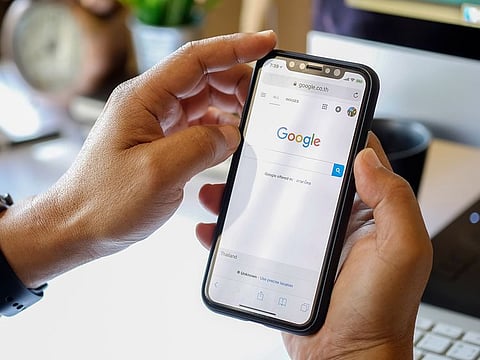Microsoft CEO, Satya Nadella, says Google's deals with Apple led to its dominance
Google set to pay Apple $18 to $19 billion this year for default status on iPhones

Washington D.C.: Microsoft chief executive Satya Nadella argued in a D.C. courtroom that Google's search engine is dominant because of deals locking it in as the default across smartphones and computers, as he testified in an antitrust trial that could affect the balance of power between the two Silicon Valley giants.
The US Justice Department's anti-trust case against Google revolves around these deals, which ensure virtually every smartphone sold in the country comes out of the box with Google search as the default. In the largest contract, equity firm Sanford Bernstein estimates Google will pay Apple $18 billion to $19 billion this year for default status on iPhones and other Apple products.
Microsoft, according to Nadella, was unable to compete. Though tech giant had been willing to pay 'north of 10 plus billion a year' to convince companies to prioritize Microsoft's Bing search engine, Apple remained in its long-standing Google contract.
"The entire notion that users have choice, and they go from one website to another website is completely bogus," Nadella said. "Defaults is the only thing that matters in changing search behavior."
Free to select
Google has argued that those companies were free to strike deals with a different search engine - but chose Google because its service is best. Google also is contending that AI technologies like ChatGPT have injected new competition into the search market.
Microsoft Bing could benefit
Microsoft stands as a major potential beneficiary if Google ends up penalized in the trial. Microsoft's Bing search engine has long been a distant rival of Google search, which dominates 90 per cent of general search queries. The Justice Department is arguing that Google used anti-competitive practices to prevent rival search engines such as Bing from having a chance.
Under questioning by Justice Department attorney Adam Severt, Nadella said that search was the largest software category 'by far', which is why Microsoft has persisted despite its low market share. Nadella said Microsoft has been hanging on in case something changes in the search landscape, giving the company a better chance.
Before Nadella succeeded Steve Ballmer as Microsoft's chief executive in 2014, he had headed Microsoft's efforts starting in 2007 to build a rival search engine to Google's. The result was the Bing search engine, launched in 2009.
Early this year, Nadella declared that 'a new race' was on against Google, after Microsoft launched an updated version of Bing powered by ChatGPT's AI capabilities. Despite an initial flurry of interest, Bing has so far peeled off only a limited numbers of users away from Google.
Wielding 'massive sticks'
Nadella said on the stand that Google has 'carrots and massive sticks' to get smartphone makers to stay in default contracts with its search engine, including the threat of not letting Android phone makers use its Google Play app store.
"Without Google Play, an Android phone is a brick," he said. "That's the kind of stuff that's impossible to overcome."
During cross-examination, John Schmidtlein, an attorney representing Google, pointed out that 'Google' remains the most queried word on Bing. He pressed Nadella to acknowledge that Google has invested much more in its search engine than Microsoft has in Bing.
Microsoft has a prior with US Justice Department
Microsoft has been in Google's shoes before. The last time the Justice Department launched an anti-trust case against a tech company, it was against Microsoft in 1998, and for similar practices. Microsoft was accused of illegally maintaining a monopoly by requiring PC makers to use its Internet Explorer browser and other applications as a requirement of running its Windows operating system. The case was settled, with Microsoft making pledges to improve competition.
Schmidtlein also asked Nadella to confirm that Microsoft was willing to 'hide' the Bing brand for its search engine to be used by Apple. Nadella disputed the characterization but acknowledged he'd broached the possibility of Apple using Bing's search technology under the Apple brand.
Nadella's more than three hours of open testimony on Monday reflected an effort by prosecutors, Google and presiding Judge Amit Mehta to make more of the trial public after backlash that the proceedings were overly secretive. Mehta has retroactively ordered parts of Apple executive John Giannandrea's testimony to be unsealed, saying too much of the questioning had taken place in closed session.
The Justice Department has resumed posting exhibits from the case online, after Google's protest in court took the website offline for days.
The trial has kicked off with the Justice Department calling its witnesses, including Nadella, and making its case. Google will get the chance to lay out its defense and call its own witnesses starting in late October.
Sign up for the Daily Briefing
Get the latest news and updates straight to your inbox







